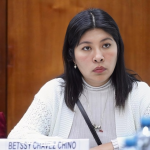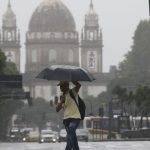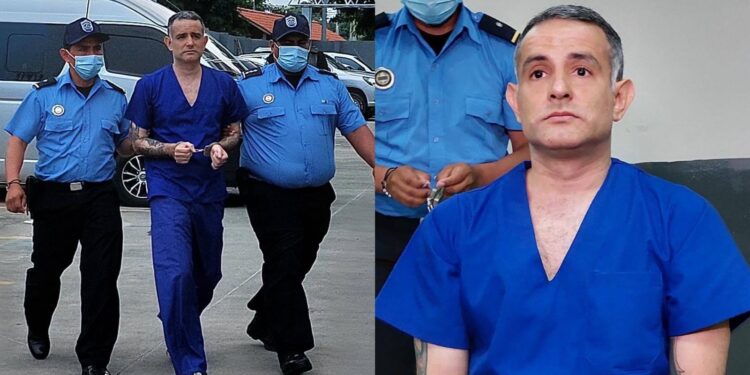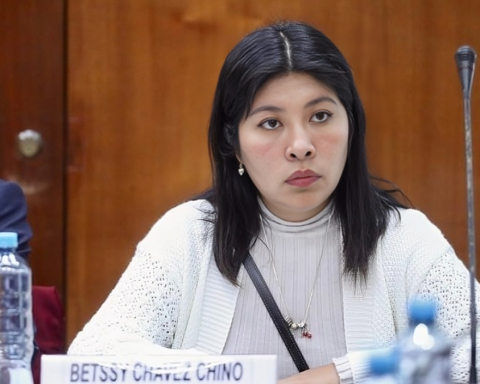AND
the book We and them. The rights of indigenous peoples, between the colonial State and the neoliberal State, towards the plurinational Stateby Ramón Torres Galarza, recently published by Sur Editores, in Ecuador, constitutes an important contribution to the struggles of the indigenous peoples of the continent, and a theoretical instrument in the construction of a democracy from below, participatory, inclusive, plural, based on the ethical-political principle that the Zapatista Mayans have condensed in the command, obey
. The challenge -says Torres- refers to the construction and political management in the creation of intercultural communities and societies that make possible the construction of the plurinational State, organized, thought and structured not in ethnic logic, but in plural democracy and contemporary nation
. For this, he appeals to the constituent power of popular power, as one of the keys to gestate the new democracies and in the midst of them, the constituent power of the peoples.
Although anchored in the Ecuadorian experience, the work transcends borders, given the historical simultaneity of processes in Our America. Torres starts from a transdisciplinary approach, focusing on a structured and well-founded critique of the neoliberal order, which denies human and collective rights, subjugating or dispensing with the State. Torres Galarza clearly identifies that the interests and needs of transnational corporations have more rights than states, human beings and nature.
We agree with his diagnosis about what this transnational power causes by unleashing the crisis of the rule of law, politics and its parties, at the same time that it makes use of justice for political purposes, criminalizing resistance. The government of capital “imposes ‘democracy and neoliberal freedom’ through authoritarianism, despotism, neo-fascism and/or the application of the doctrine of national security and the misuse of states of emergency.”
One of the author’s contributions is to identify colonial reason, which survives to this day, as “a set of categorical presuppositions that deny the existence of ‘Indians as subjects’ and strip away their identities of origin to build an ‘other’, a alien, a different discriminated, exploited and subordinated. Based on such assumptions, exploitation and accumulation take place in the colonial regime, through dispossession, appropriation and control of the means of production, communal goods and surpluses, while colonial law is exercised from a german police science
necessary to subdue and control the dominated populations.
In Ecuador and in our countries, a nation-state model is imposed that ignored the reality of multicultural and multiethnic societies, as well as their constituent processes. Thus, the development of constitutional regulations has responded to principles that seek the disintegration of the indigenous world, through state policies that seek to integrate the modern life
to the “indigenous marginalized’.” As in Mexico, State policies and current law have sought to incorporate the demands of indigenous peoples, modifying their character and dimension as peoples, granting a treatment of individual claims or those of marginalized groups, tribes, groups or peasants. For the law, indigenous people are an amorphous, ambiguous, indeterminate subject, capable of being integrated and, therefore, their identity as peoples is unknown.
Especially suggestive is the analysis of the doctrine of the internal enemy, the states of emergency and the dissipated molecular revolution, which has been dictated, updated and adapted from the US security and intelligence policy. When we observe the ongoing militarization processes, which in the case of Mexico are more than evident, I agree with the author that the military control of the State is inherent in the National Security Doctrine, as well as the substitution of the enemy external
by the enemy internal
, and the application of states of exception that grant extraordinary powers to heads of state. This idea is interesting dissipated molecular revolution
, which, from power, tries to be a conspiracy theory that “argues that the demonstrations and social protests in Latin America are based on a plan and strategies of the radical left to end democracy and establish a communist regime. These ideas are also reflected in the concept of ‘us and them’ and in warmongering categories that turn social conflict into a war scenario”.
This book will make a substantial contribution to the struggles and emancipatory resistance of Abya Yala, at a particularly decisive moment in contemporary history, in which the very survival of the human species is at stake.

















